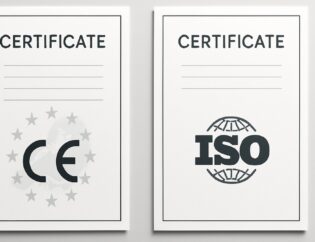
Risks of Products Without CE Certification in the European Market
For manufacturers who want to sell products to European Union (EU) countries, the CE mark is not just a label; it is also a legal requirement. Products without CE certification pose serious legal, commercial, and safety-related risks in the European market. Therefore, it is critically important for companies planning to offer their products in the EU market to be aware of these risks.
- Legal Sanctions and Fines
According to EU legislation, placing products on the market without the CE mark, when it is legally required, can lead to severe fines and legal sanctions. Authorities may implement measures such as:
- Product recalls,
- Import bans,
- Halting of sales.
Additionally, the manufacturer or importer may be required to provide technical reports explaining why the product is non-compliant.
- Products Being Held at Customs
Products without CE certification may not be allowed to pass through European customs. This situation can lead to:
- Extended delivery times,
- Additional storage and logistics costs,
- Decreased customer satisfaction.
Customs authorities expect products to be presented with a complete technical file and a declaration of conformity.
- Loss of Brand and Corporate Reputation
The recall of non-CE certified products from the market damages not only the individual product’s reputation but also the trust in the entire brand. Such incidents:
- Erode consumer trust,
- Make re-entry into the EU market more difficult,
- Give competitors a competitive advantage.
- Loss of Business Partnerships
Many distributors, wholesalers, and retailers prefer to work only with CE-certified products. Products without the CE mark can result in:
- Canceled business partnerships,
- Loss of potential commercial opportunities,
- Damage to long-term customer relationships.
- Failure in Product Safety Inspections
The CE mark demonstrates that a product complies with health, safety, and environmental standards. Products without the mark may:
- Fail safety tests,
- Be rejected due to incomplete technical documentation,
- Incur additional costs for re-testing and re-manufacturing.
Conclusion
Offering non-CE certified products in the European market carries high risks in terms of both legal sanctions and commercial losses. Legal barriers, the possibility of being held at customs, damage to brand reputation, and loss of business partnerships are among the key challenges manufacturers may face.
To maintain a sustainable and secure presence in the EU market, it is essential to complete the CE certification process thoroughly.









